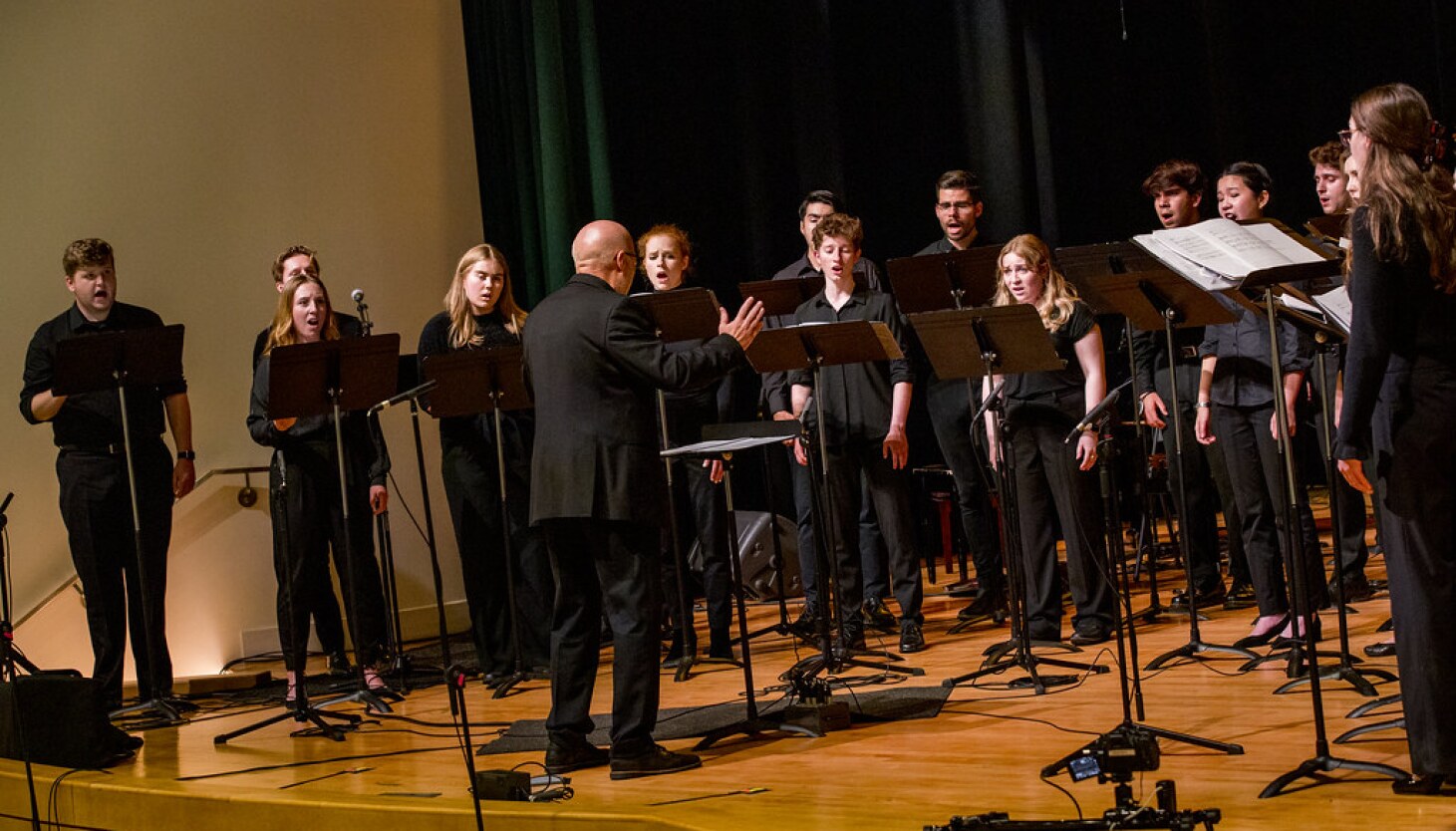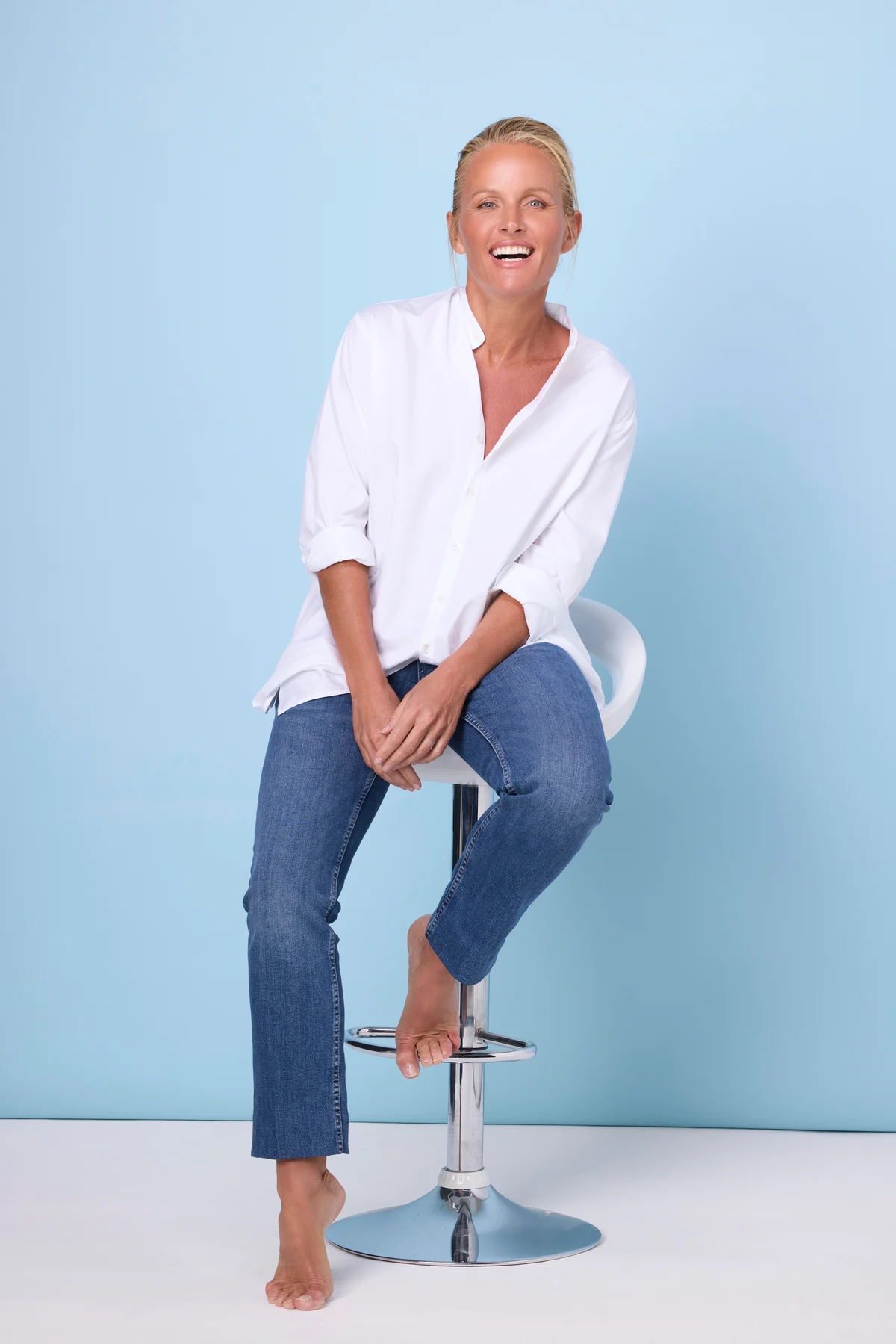
Like a blue moon, a festival with a quirky name crops up every once in a while on the arts calendar, sometimes leaving Chicagoans scratching their head: Ear Taxi.
The name alone doesn’t tell you much — except that its route is winding (true) and you’re in for a memorable ride (also true). Founded in 2016 by composer Augusta Read Thomas, the festival gives a platform to contemporary classical musicians, members of a flourishing, if stubbornly unmarketable, musical community in our city. And while we’re divining meaning from names, “contemporary classical” is precisely what it sounds like: music using classical techniques and training by composers who — unlike Bach, Beethoven and Brahms, bless them — are very much still living and with us.
Then, there’s the scope of it all. The third-ever Ear Taxi, which zooms around the city between Oct. 3 and Nov. 2, encompasses 44 concerts or affiliated events and features some 430 artists. Over the course of a month, the Festival will present more than 70 pieces of music for the very first time, most by Illinois composers.
Those are some head-spinning numbers. You’ll want to spend some time parsing through the festival’s full list of concerts to plot your own route. They’re helpfully broken into series, such as the main-event Anchor Performances. Those begin Oct. 3 with the rock-meets-Baroque oratorio “Lost Objects” and end on Oct. 18, with Damien Geter’s “African American Requiem” and a brand-new piano concerto by Chicago composer Stacy Garrop.
But should you want more under-the-radar pointers, here are some of the listings that caught my eye, then my ears.
Citizen musicians
A winning new feature of this year’s Ear Taxi is its double and even triple bills, allowing you to take in oodles of music in the span of a single evening. One can’t-miss example comes on Oct. 5 at PianoForte in South Loop: Crossing Borders Music, a globally minded chamber music organization, premieres pieces written by student composers in North Lawndale and Garfield Park. After that, the all-treble choir La Caccina presents “Weird Sisters,” a whimsical program about “witches, magic, and powerful women.” The packed evening ends with a set by Holocene, a unique trio of piano (Phoebe Wu), flute (Dalia Chin) and cello (Isidora Nojkovic).
Who’s on next
Speaking of stuffed bills, three of the city’s most enterprising and inventive young musicians share one on Oct. 9 at the Epiphany Center, a church-turned-arts-haven. Ty Bouque is many organisms in the new music ecosystem: a musicologist, writer, composer, and baritone with an aptitude for demanding, wet-ink works. On this occasion, Bouque steers the maiden voyage of a work by the ever-intricate British composer Michael Finnissy.
Saxophonist/composer Nick Zoulek follows that with a set “explor[ing] the saxophone as a biofeedback mechanism,” in which everything from his breath to the clack of the instrument’s keys can be building blocks for towering musical statements. Asé, alias John Bitoy III, brings it home with a quasi-autobiographical set that nods to the West Sider’s experiences across jazz and classical.
Rare instrument, rarer context
The passion project of percussionist Gregory Beyer, Arcomusical may be the only ensemble of its kind in the world: a chamber orchestra of berimbaus. The single-stringed Afro-Brazilian instrument is rarely heard outside of capoeira games; on Oct. 12 at Roosevelt University’s Ganz Hall, Arcomusical uses it as a vehicle for new music by the likes of Chicago bassist/composer Matt Ulery and tabla player Krissy Bergmark, both performing as part of its set. They share the bill with avant-garde instrumentalists Fonema Consort and Stare at the Sun, avid and adventurous commissioners of new choral music.
Going big
Ear Taxi’s Anchor Performances are its biggest gimmes, but be sure not to miss this one: the operatic triptych on Oct. 17 at the Kehrein Center for the Arts in Austin. Chicago Fringe Opera — a scrappy outfit unafraid to think outside the box — guides performances of one-acts by composers Kate Soper, Regina Harris Baiocchi and Jasmine Barnes (of She Who Dared fame, on earlier this year at Chicago Opera Theater).
Sippable sounds
Ensemble Dal Niente knows how to throw itself a party. Every year, the group has balanced its bracing, cerebral repertoire with a season-end bash, at which the tipples have flowed as easily as the tone rows. This time, Dal Niente opens its season — its 20th — with “Hard Music, Hard Liquor,” hosted by West Lake View new-music haunt Constellation on Oct. 19. The repertoire is, indeed, very hard; luckily for you, you can observe the musicians’ sweaty virtuosity over the frosty rim of a Genmaicha Collins.
The Oct. 24 problem
This particular Friday evening is the festival’s busiest, with four different Accent Concerts happening at once around the city. Picking among them is tough, but I want to put in a plug for 6 Degrees, at Columbia College’s Sherwood Hall in South Loop. That program spotlights works by Regina Harris Baiocchi (also featured in the Chicago Fringe Opera program), Kyong Mee Choi, Ester “Hana” Hanviriyapunt, Janice Misurell-Mitchell, Patricia Morehead and Africa Brown — six stalwart Chicago composers who have been at it for decades, working in spheres from classical music to jazz to West African percussion and dance. Plus, the otherworldly pipes of singer Adore Alexander, performing on the program, is worth the price of admission alone.
A composer overlooked
On Oct. 26 at PianoForte, pianist Daniel Baer presents a portrait concert of the underrated New York composer Robert Savage, whose career was cut tragically short by AIDS in 1993. The program includes two works written in the last year of Savage’s life: “Dance of Avoidance” and “AIDS Ward Scherzo,” the latter Savage wrote in the hospital.
Venues off the beaten path
Of the 20-plus venues hosting Ear Taxi, two stand out. Michael Hall, a violist and unflagging champion of local composers, plays an Oct. 20 recital at Hyde Park’s historic Blackstone Library. Hall’s repertoire ranges from a piece being heard for the very first time (Jonathan Hannau’s Leaflet) to his own music.
Then, on Oct. 28, the Chicago Bagatelles Project takes over the Hall of Immortals at the International Museum of Surgical Science. The sampler-platter evening spotlights those bagatelles — 12 new mini-works for solo saxophone, played by Phil Pierick — as well as music for soprano (Kristina Bachrach), percussion (Kyle Flens) and flute (Sasha Ishov). There will even be an audience participation portion: an interactive performance of Luciano Berio’s “Sequenza VIIb,” from his landmark series for solo instruments.
The grand finale(s)
This ain’t your high-school marching band. On Nov. 2, Mucca Pazza — a Chicago mainstay for their costumed personas and genre-fluid, extravagantly kooky performances — brings Ear Taxi to a festive close at SPACE in Evanston.



